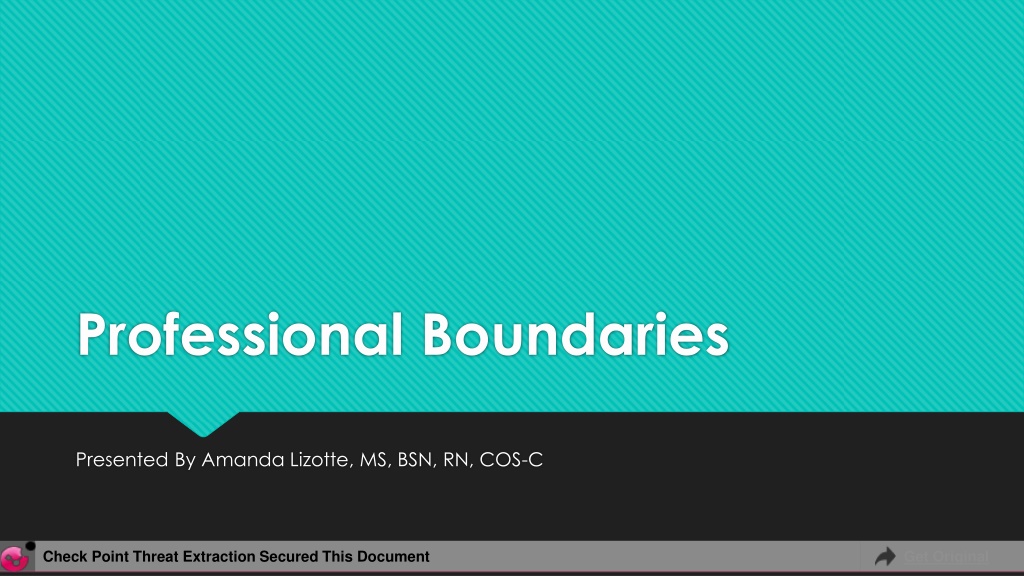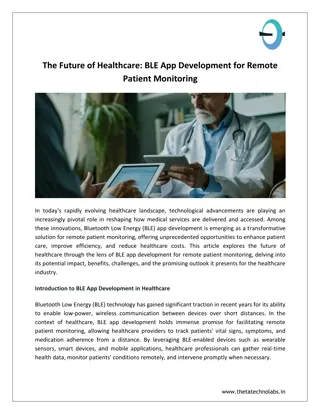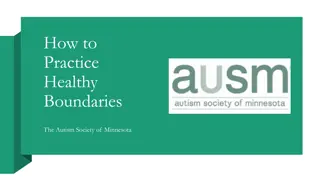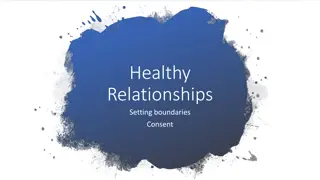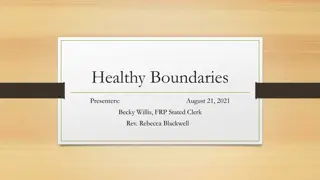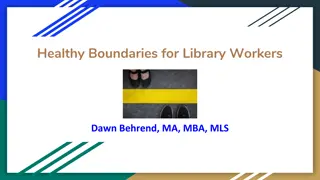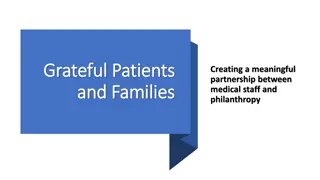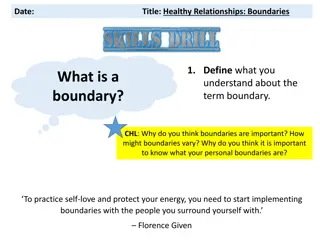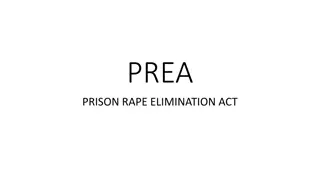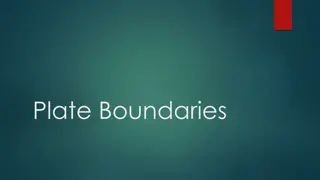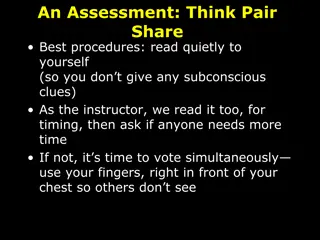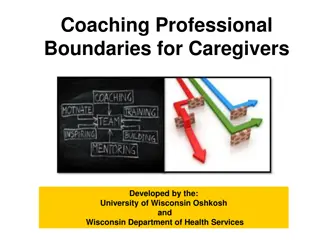Understanding and Maintaining Professional Boundaries in Healthcare
Professional boundaries in healthcare are crucial for protecting both the worker's professional power and the client's vulnerability. This document explores the importance of professional boundaries, essential practices, signs of overstepping boundaries, and ways to uphold these boundaries effectively to ensure ethical and successful relationships with clients and patients.
Download Presentation

Please find below an Image/Link to download the presentation.
The content on the website is provided AS IS for your information and personal use only. It may not be sold, licensed, or shared on other websites without obtaining consent from the author. Download presentation by click this link. If you encounter any issues during the download, it is possible that the publisher has removed the file from their server.
E N D
Presentation Transcript
Professional Boundaries Presented By Amanda Lizotte, MS, BSN, RN, COS-C Check Point Threat Extraction Secured This Document Get Original
Professional Boundaries Professional boundaries are limits which protect a worker s professional power and their client s or patients vulnerability. Successful and ethical relationships are based on a clear understanding of what the workers role is- and just as importantly- what their role isn t
Why Do We Need Professional Boundaries Keeps Focus on the patient Reduces burn out Prevents the client from becoming dependent on a particular support worker Protect the client from potential harm- both intentional and unintentional Ensures we maintain our ethical standards Prevents increasing or unreasonable demands and expectations from the client and family Decreases difficulty in setting limits and managing behaviors Alleviates distress when relationships break down Prevents grief and loss for patients/families when worker leaves Contributes to team cohesiveness
Essential Professional Boundaries Keep your family and home life private Use professional language at all times Do not pay for your client or let them pay for you Do not attend to personal business in a patient s home Empower your patients, Don t make yourself irreplaceable Do not accept gifts or buy gifts for your patients
Sign of Professional Boundaries Being Overstepped Feeling that you are the only one who understands the patient Accepting money or expensive gifts from patients or their family Asking patients or their families for favours Noticing feelings of friendship or sexual attraction towards patients or their family Having patients or family members refer to you as a friend or a part of the family Disclosing your own personal information with your patients or their family. Visiting patients on your own time Taking patients to your home or introducing patients to your family members or friends.
Phones Do not give out your personal home or cell numbers. Provide patient with agency/branch number or agency cell phone number Be cautious about which phone you are calling from Be clear and consistent about which numbers patients can call Be clear about your availability
Social Media Email addresses: Do not provide personal/professional email address Facebook, Instagram, Twitter, Snap Chat, Dating apps Do not friend any patients/family Do Not accept any friend requests Do Not discuss patients/company/family on your pages
Personal Disclosure Is a gray area Danger: Can burden patient/family member Our focus needs to be on the patient s needs You Don t have to answer every question You can provide vague answers: Yes I do have children I live in the Merrimack valley When is it safe to disclose: To develop rapport/trust When it is in the best interest of the patient
Gifts In general, policy is: Not to accept gifts from patients Solution is to suggest they make a donation to the branch/agency/facility Token Gifts Would I feel ok telling my manager about this? Is this in the best interest of the patient What would the consequences be if the clinician refused
Tips for Maintaining Boundaries Respect confidentiality and privacy Do not disclose personal information Do not criticize, complain about or discuss issues relating to other workers, staff or your employer with your patients or their family Do not give advice outside of your skills and expertise
